Where Justice and Community Meet

ayne State University is one of only a handful of public urban universities holding top-tier Carnegie Classifications — the leading framework for assessing impact in American higher education — for both research and community engagement. Wayne Law has long taken that identity seriously. Throughout the pandemic, the Law School has innovated relentlessly, adding new programs to provide even more opportunities for faculty and students to work together to bridge the school’s research and service missions.
Some of those programs build on Wayne Law’s storied history of leadership in clinical education. The new Community Advocacy Clinic, for example, is a learning and service lab that adapts to the community’s evolving needs by collaborating each year with a different organization. Students learn how to advance social justice from the ground up, working with a broad range of stakeholders and preparing and pursuing non-litigation strategies to address pressing legal issues across diverse populations. Others expand the Law School’s robust externship program far beyond its traditional borders. Thanks to a partnership between the Damon J. Keith Center for Civil Rights, Carl Levin Center for Oversight and Democracy, and public interest firms and government agencies, for instance, a new semester-long immersion program in Washington, D.C. — Lawyering in the Nation’s Capital — offers students the chance to work, learn and serve in civil rights organizations and on Capitol Hill in House and Senate offices.
Where Justice and Community Meet

ayne State University is one of only a handful of public urban universities holding top-tier Carnegie Classifications — the leading framework for assessing impact in American higher education — for both research and community engagement. Wayne Law has long taken that identity seriously. Throughout the pandemic, the Law School has innovated relentlessly, adding new programs to provide even more opportunities for faculty and students to work together to bridge the school’s research and service missions.
Some of those programs build on Wayne Law’s storied history of leadership in clinical education. The new Community Advocacy Clinic, for example, is a learning and service lab that adapts to the community’s evolving needs by collaborating each year with a different organization. Students learn how to advance social justice from the ground up, working with a broad range of stakeholders and preparing and pursuing non-litigation strategies to address pressing legal issues across diverse populations. Others expand the Law School’s robust externship program far beyond its traditional borders. Thanks to a partnership between the Damon J. Keith Center for Civil Rights, Carl Levin Center for Oversight and Democracy, and public interest firms and government agencies, for instance, a new semester-long immersion program in Washington, D.C. — Lawyering in the Nation’s Capital — offers students the chance to work, learn and serve in civil rights organizations and on Capitol Hill in House and Senate offices.

Holistic Defense Partnership
“The Holistic Defense Partnership seeks to further develop the Law School’s collaboration with other schools at the university and maintain its strong connection with the local community,” Ellman said. “The goal is to expose and train students in this type of interdisciplinary work, enabling them to emerge powerful advocates upon graduation.”
By design, law and social work students work side by side, learning from each other under professional supervision.
“This way, our students develop a diverse skill set and learn to work collaboratively on teams, both of which will be invaluable in their future practice,” said Ellman, who once worked as a public defense attorney at the Bronx Defenders, the originator of holistic defense practice.
“What is unique about this approach is the integration [of social work] into the criminal legal system, which has resulted in shorter client sentences, a reduction in pre-trial detention and ultimately saved taxpayer dollars,” said WSU School of Social Work Dean and Professor Sheryl Kubiak.

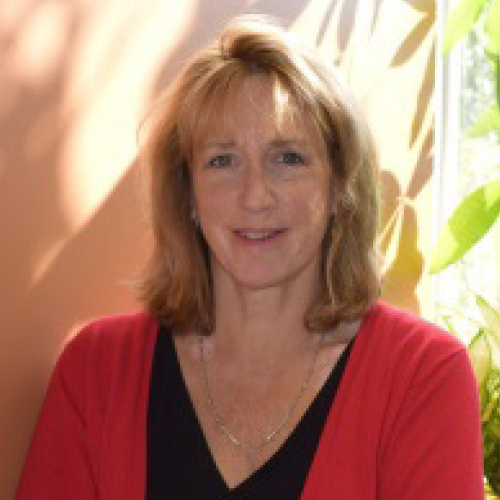
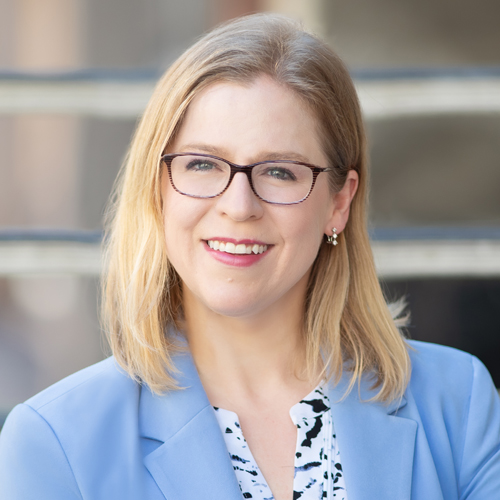
Finding solutions together
“I feel very strongly in the benefits of holistic defense and think it is amazing that students get an opportunity to participate in and see the benefits of holistic defense early on in their legal careers,” she said. “Holistic defense centers on viewing our clients as whole persons and looking at all their needs beyond merely the criminal case facing them. We strive to help clients with those challenges whenever we can, on top of providing tenacious advocacy in court proceedings.”
LaVoy continued, “When people who are already marginalized and have low income face legal charges, their lives are often thrown into disarray. If they’re held without bail, they will lose their jobs and even their homes and access to their children. Families will be without loved ones, important occasions will be missed, and those with mental health problems and substance abuse disorders will suffer further without adequate treatment.”
The results, LaVoy pointed out, are disastrous — not just for those individuals charged, but for their families and the community as a whole.
“So, when we first visit with our clients, one of the first things we discuss is housing,” she said. “How can someone be expected to focus on defending themselves against a felony charge if they face housing insecurity? Should our clients be homeless, facing eviction or dealing with other housing issues, we can have our housing attorney help address such issues. Should our clients need a little help finding the appropriate counseling service, our team of social workers and client advocates is ready to help.
“By addressing clients’ underlying needs,” LaVoy continued, “we can reduce pre-trial detention, improve case outcomes and save taxpayers money. This isn’t just theoretical; holistic defense works. A recent 10-year study by the RAND Corporation of the holistic defense model showed that over 10 years, this model saved indigent clients in New York a total of 1.1 million days behind bars and saved taxpayers an estimated $165 million in housing costs alone.”
Professionals at the core of a holistic defense practice may include criminal, civil, family defense and immigration attorneys, as well as social workers and other advocates.

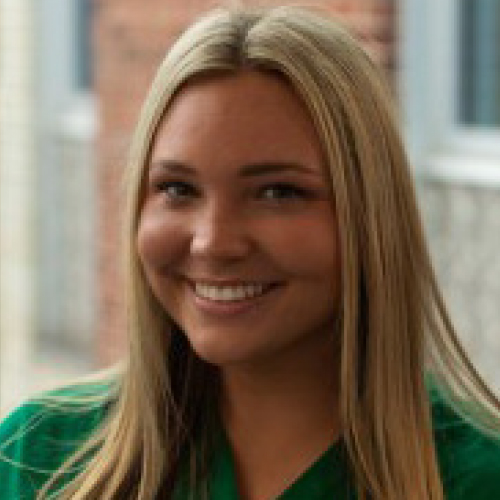
Practicing across boundaries
Externship law students also are required to complete 150 hours of fieldwork at an approved placement site. Social work students, likewise, must complete hours in the field.
Taylor Ramsey, who is earning her master’s in social work at Wayne State, explained the importance of the program: “I got involved because I am passionate about advocating for the rights of all, and that includes people who are incarcerated and otherwise involved in the criminal justice system.”
Ramsey spent nine months working as an intern for the Detroit office of the Federal Community Defender of the Eastern District of Michigan, which provides court-appointed representation to indigent defendants charged with federal crimes in the U.S. District Court, U.S. Court of Appeals for the 6th Circuit, and the U.S. Supreme Court.

Reflecting on her clients, Ramsey spoke of a 20-year-old woman with bipolar disorder who was arrested for first-degree murder following a manic episode where she was without proper medication. The woman was facing life in prison without the possibility of parole.
“Our holistic defense team was able to do so much for this client,” Ramsey said. “Her family was unsupportive, and so were her friends. Someone from our team was able to visit with her weekly while she was in jail awaiting her sentencing. We were able to make sure she was getting proper medication and that her overall mental health was stable. From her arraignment to her sentencing, there was a complete change in her well-being.
“On the legal side, we were able to provide the judge with research and records to advocate for her,” Ramsey continued. “She did not deserve to spend the rest of her life in prison for an awful mistake she made as a 20-year-old who was struggling with severe mental health issues. At her sentencing, the judge listened to our team and gave her a 20-year sentence in a facility that would be able to accommodate her mental health needs.”
Ramsey also spoke about another client facing two counts of drug possession.
“He had been in and out of the criminal justice system since he was 11 years old, and he is now 38,” she said of her client, who had suffered multiple forms of abuse, multiple suicide attempts, and had a diagnosis of schizoaffective disorder as well as a severe drug addiction.
Ramsey spent a significant amount of time talking with him and his family members, getting access to whatever records she could, and setting up his treatment.
“The night before his sentencing, he called me,” Ramsey said. “He told me that he was very nervous and asked if I would say a prayer for him. And then he told me something that I will never forget: ‘No matter what happens tomorrow, I want to thank you for everything that you have done for me. I have never had anyone fight for me and advocate for me the way that you have. I don’t have anybody to do these things or help me, so I thank you.’
“That showed me how much a client is impacted by the relationship you have with them,” Ramsey continued. “For someone who has been in the system for nearly 30 years to have never received the kind of care that I provided is unacceptable.”
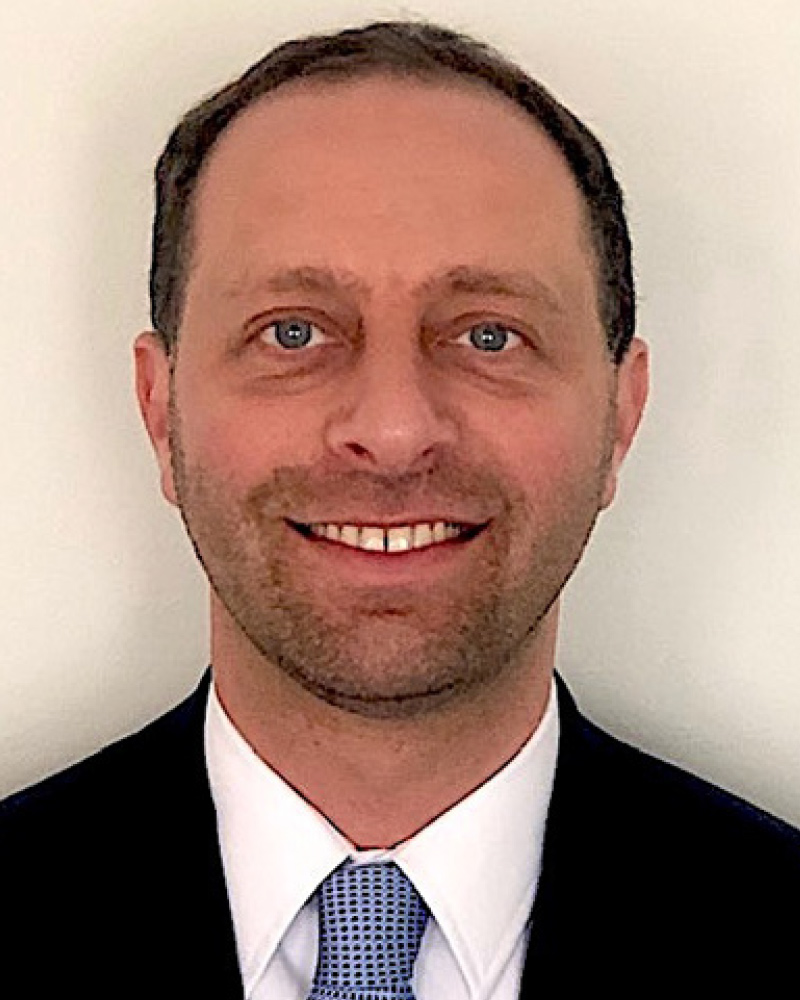
Changing lives
“I absolutely love this work,” she said. “It was definitely hard to watch sometimes, but the connection and care I was able to give my clients made it worth it. As my work and studies progressed, my time at the Federal Community Defender office confirmed that this is the field I was meant to be in.”
The students’ work also benefits the Federal Community Defender, said attorney Amanda Bashi, a training director with the organization’s Detroit office.
“The holistic defense students are able to work directly with our clients, complete social history interviews, prepare for hearings, and gather records documenting our clients’ background and history,” she said. “All of this is important work that helps us advocate for our clients to be released on bond, benefit from a reasonable plea offer or receive a lesser sentence. The students are really seeing and doing the heartbeat of our office’s work.”
“We train our students on numerous topics at the beginning of the semester,” Bashi continued, “including a full overview of the timeline of a federal criminal case, the basics of federal criminal procedure and federal sentencing, an orientation to mitigation, how to conduct a social history interview, basic client interaction and communication training, and occasional role-play preparation. Students are also given the opportunity to attend and observe court hearings throughout the semester.”
Katherine Marcuz, managing attorney at the State Appellate Defender Office, further praised Wayne Law’s Holistic Defense Partnership students.
“Holistic representation is a client-centered, community-oriented approach that requires time and resources,” she said. “Wayne Law students play an important role in an interdisciplinary team — along with a social work student and a supervising attorney, among others — that provides creative and comprehensive representation that meets the particular needs of our clients. Students participate in the representation of SADO clients.
“Their tasks include client correspondence and counseling; mitigation investigation; re-entry assistance; and preparing legal pleadings such as sentencing memoranda, bond motions, motions for jail sentence reduction, and commutation petitions,” Marcuz continued. “It allows students to learn, observe, acquire practical skills, make connections and represent real clients. We hope that by getting involved in SADO’s work, students will recognize the value and dignity of our clients and become invested in transforming the legal system.
Holistic defense externs at SADO also receive training on the appellate process and client communication and counseling skills, in addition to training tailored to the projects they will work on. In fall 2021, for example, SADO Paralegal Frank Rodriguez trained externs on how the sentencing commutation process works in Michigan. Rodriguez is the author of the Defender Guide to Michigan’s Commutation Process.
Rising third-year law student Brieanna McAuliffe completed the Holistic Defense Externship last fall. Her work focused on supporting the attorneys at Neighborhood Defender Service of Detroit with research and writing.
“At one point, I researched alternative potential pleas and writing a memo for court,” McAuliffe said. “I took Criminal Law and Evidence at the same time as the externship, which was beneficial to the experience. The externship provided a bit of real-world practice to the rules, which assisted in my understanding of their application.
“The practice looks at individuals as more than their offense, so we work to defend them and try to help them in other areas where they need it,” she continued. “For instance, that may be housing or employment. As my studies have progressed, I’m only more interested in the practice, and I plan to find employment that utilizes it. I feel that standard defense practices are only concerned with the individual up to sentencing, and holistic defense extends beyond release for the betterment of the individual. I think we need more defense attorneys who care about the outcome of their clients.”

Warrior Housing Corps
After a conference with nearly 40 state justices, Garland reported that “they noted that the vast majority of tenants need access to legal counsel because far too many evictions result from default judgments in which the tenants never appeared in court.”
Wayne Law answered the attorney general’s call by creating the Warrior Eviction Defense Corps, partnering with several legal service providers: Lakeshore Legal Aid, United Community Housing Coalition, Michigan Legal Services, and Legal Aid and Defender Association. While initially focused on providing direct legal assistance to address the eviction crisis, the program is seeking to expand its impact. Renamed Warrior Housing Corps (the corps), in addition to direct representation, the program plans to offer other opportunities for law students related to housing justice, as well as a professional development series connecting students with practitioners and advocates in the housing space.
Students in the corps are first trained by a partner legal aid agency and then supervised in their work by experienced attorneys. By the end of the winter 2022 semester, Wayne Law students had dedicated 1,900 hours to eviction defense work.
“What has really stood out in this effort are the individual experiences,” said Ellman, one of the program’s faculty directors. “One student recently reached out to me to explain how much the corps has meant to him. He said that representing people facing eviction was the reason he wanted to be a lawyer — to stand up for people who needed him most.”
Among those students impacted by working in the corps is Yvonne Tirakian, who earned a sociology degree from WSU in 2020 and graduated from Wayne Law in spring 2022. She began law school through “Law Start,” a competitive program that allows Wayne State students to begin their legal studies during their fourth undergraduate year.
Through the corps, Tirakian worked in the eviction diversion program at Lakeshore Legal Aid, a nonprofit offering a range of free civil legal services for people with limited resources. She found the work so fulfilling that she has accepted a full-time position there as a staff attorney beginning as soon as she passes the bar exam.
“I was really scared going in that I would be incompetent, but the support and mentoring I got taught me that I can do it,” Tirakian said. “I’m making a difference for people. It’s very rewarding work, and it’s work I want to continue doing. I’m really happy to work with them.”
From eviction to resolution
“I kept numerous clients from losing their homes,” she said. “If they did have to move out, we helped them get relocated. One of the difficult parts is that we can’t help every client who walks in the door due to federal guidelines for funding; in that case, we give them some detailed instructions. We can put people on the paths so they can resolve the issues. It’s disappointing that we can’t represent every single client. Having said that, I can still talk to them, hear what they say, be empathetic and at least try to comfort them.”
Tirakian observed that Lakeshore Legal Aid attorneys often help those facing eviction find necessary resources, including places to apply for jobs and find free and reduced bus passes, plus more ways to solve challenges.
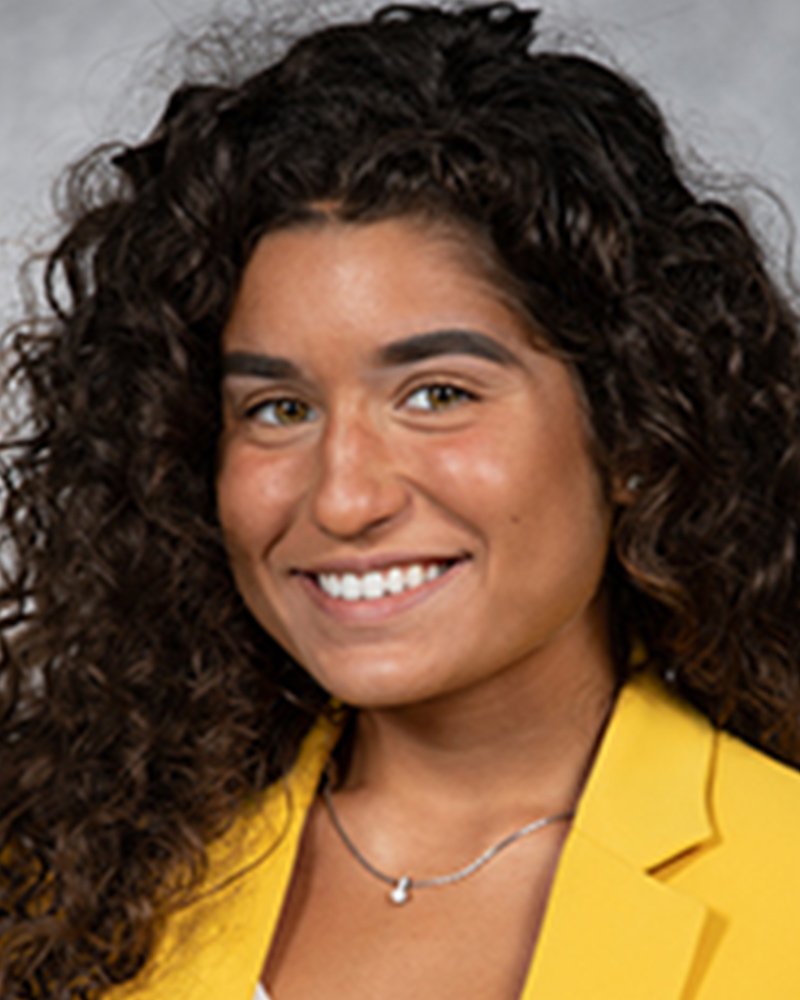
“You can still help a client even if you lose in court, if you treat them with respect and you give practical advice and you find their best options,” she continued. “We try to increase the knowledge of the client even if we can’t really fix their situation. We give them the tools to help themselves. If we can’t solve the problems they come to us with, we can at least give them some preventive measures.”
Saving a client from homelessness often is “prevention worth a pound of cure,” Tirakian said. “Not having a home can definitely lead to being charged and arrested. Once you’re homeless, it’s criminal to squat places, to sleep on the street. If a child is homeless, they are already set back from all of their peers.”
Eviction defense also ends up helping landlords, Tirakian noted.
“When you have an attorney who can help sort out the issue going on with the tenant, we make their jobs easier,” she said. “Landlords have a right, and this is a problem that goes both ways. This is their livelihood. You want to have the best problem resolution that you can. I’ve seen unrepresented landlords in court. When you have legal representation on both sides, you have a better chance for a better outcome on both sides. I want people on both sides of the dispute to get a favorable outcome.”

Police Practices Student Fellowship
Wayne Law Dean Richard A. Bierschbach is one of nine deans who sit on the Law Deans Advisory Board to the LEPPC. When the board launched a student fellows initiative as part of its police reform work last year, he and Assistant Professor and Director of Clinical Education Rebecca Robichaud moved quickly to get students at the Law School involved.
“Our students are eager to engage in their communities, utilizing the skills and knowledge they are developing in law school. This fellowship is an extraordinary opportunity to influence and work in an area of law that is in such a formative stage,” he said. “Through the ABA fellowship, students learn from diverse professionals about policing practices and apply that knowledge to the research and writing they are doing on the local communities. I can see our students developing into policy leaders and practitioners who will have lasting influence on policing practices.”
The LEPCC chooses student fellows from among those nominated by participating schools. During the fellowship’s first semester last fall, Wayne Law fielded two fellows. The Law School continued the police practices work over the summer with two students, and this fall, three Wayne Law students will work as fellows. Rising third-year law students Kawkab El-Moussaoui and Dominica Convertino were two of only 38 fellows named to the initial cohort, and the only two from a law school in Michigan.
El-Moussaoui’s research has focused on the city of Dearborn, home to the nation’s largest population of Arab Americans, and Convertino’s research has focused on examining police practices in the city of Detroit.
“Dearborn’s history is very similar to that of many other cities in the nation when it comes to discriminatory law enforcement practices,” El-Moussaoui said. “And, unfortunately, many racist police practices still persist in Dearborn today. I’m eager to see how the academic research that comes from this fellowship can be used to implement better legislation and more humane police practices moving forward.”
El-Moussaoui has a bachelor’s in political science from the University of Michigan. Throughout the summer, she is interning for U.S. Sen. Gary Peters, a Wayne Law alumnus, and the Senate Committee on Homeland Security and Governmental Affairs on Capitol Hill. Last summer, she was a legal extern in the Civil Rights and Criminal Trials and Appeals Division of the Michigan Department of Attorney General.

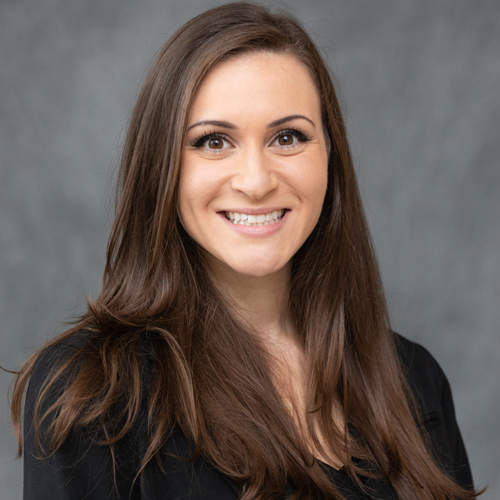
Engagement through research
“The pressing question before us is not whether we should reform police practices in America,” she said. “That much is abundantly clear. My research delves into the history of racism that has plagued law enforcement practices in our nation. It’s critical to acknowledge how that history continues to inform modern policing — especially in Detroit, where Black people make up roughly 80% of the population.
“Through the ABA fellowship, I have had the unique opportunity to delve into data-backed solutions to a ubiquitous policy problem,” she continued. “Ultimately, my hope is that this meticulous research equips and empowers state and local leaders to enact substantive and lasting improvements to police practices.”
Convertino holds a bachelor’s in political science from the University of Michigan-Dearborn; prior to attending Wayne Law, she worked for several years in public service, including as a legislative director at the Wayne County Commission. After her first year of law school, Convertino earned the Pro Bono Warrior Award for volunteering more than 300 hours of legal work.
“The ABA fellowship has been a meaningful part of my legal education and law school experience,” she said. “Based on my research, I believe that political efficacy — the belief that one’s democratic participation will affect government outcomes — is one of the most vital aspects of implementing meaningful reform to police practices.
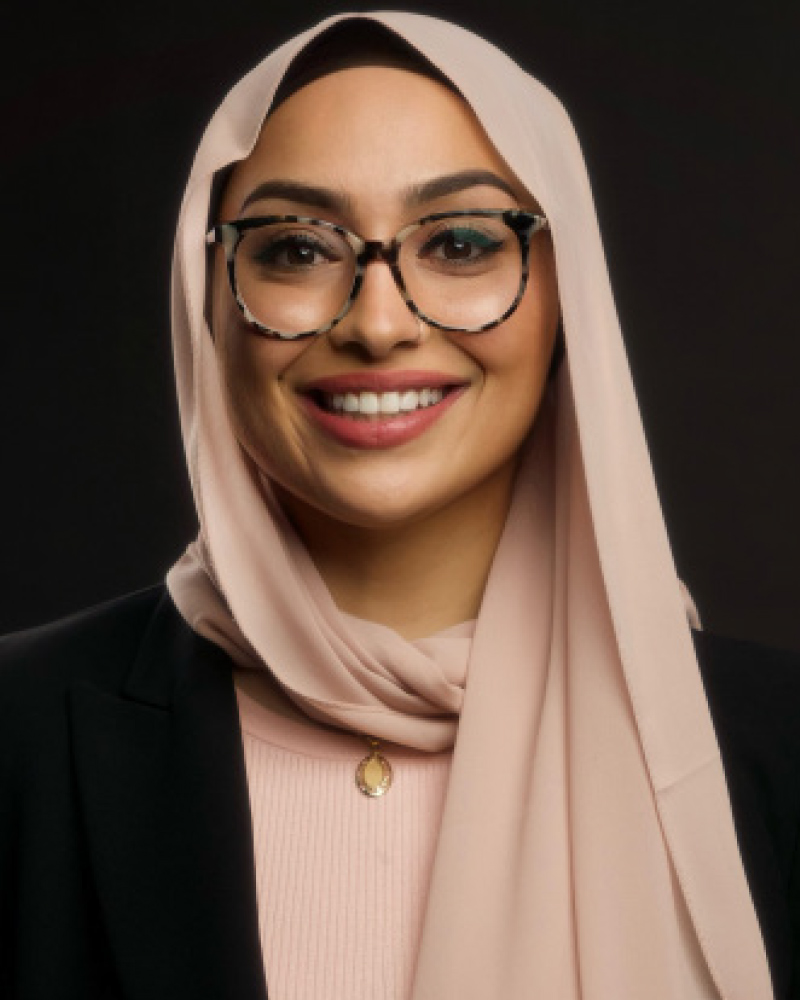
“Considering the gravity of systemic racism and other ills in modern policing,” she added, “I believe we owe to our fellow citizens an unwavering commitment to remain civically engaged in these efforts.”
During winter 2022, the Wayne Law students met with other ABA fellows across the country on a biweekly basis. After each meeting, Convertino and El- Moussaoui met with Robichaud, their faculty advisor, to debrief and discuss their research.
“Through the ABA fellowship, we are developing a small but robust learning community at Wayne Law committed to long-term work on studying, analyzing and providing recommendations to improve police practices in our local communities,” said Robichaud. “It is another example of Wayne Law’s commitment to taking classroom learning and engaging in the current needs of our communities. Our students learn not only how to provide representation, but to be leaders in developing just legal systems.”